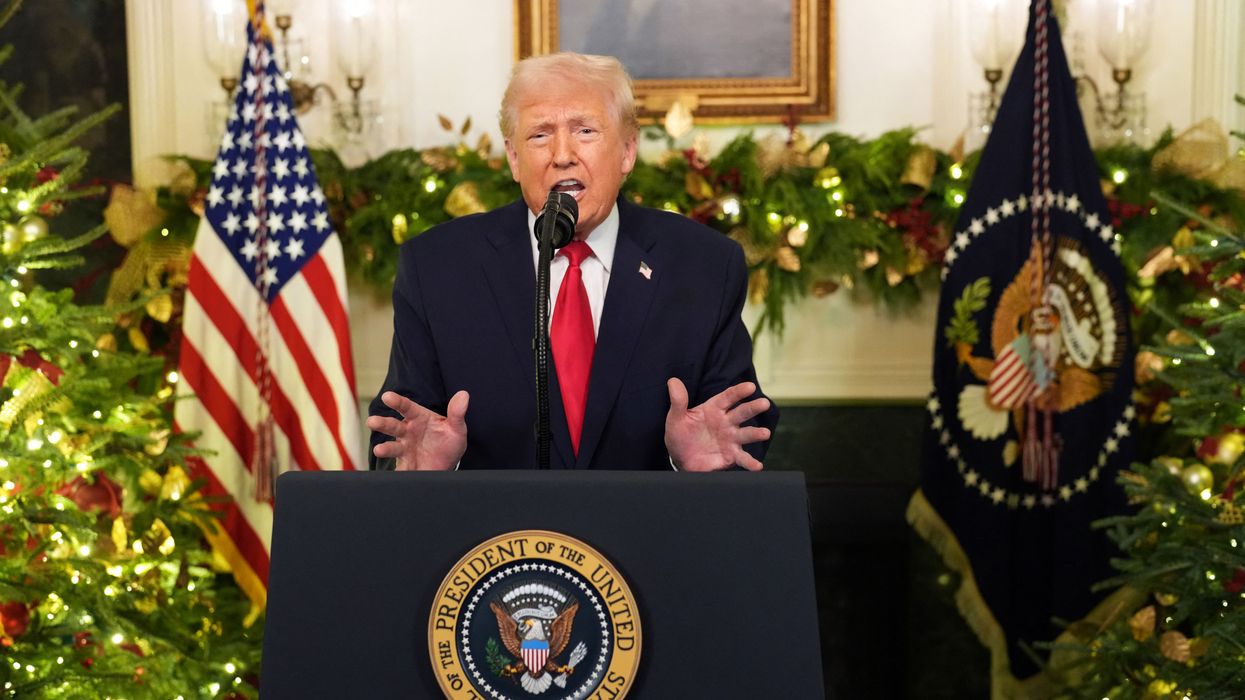Today, Wikileaks released a second batch of the most updated draft texts on the proposed TISA, along with substantive analysis, on each of four cross-cutting annexes: Financial Services, Telecommunications, Electronic Commerce, and Maritime Transport. This follows on their release yesterday of texts on Domestic Regulation, the "Movement of Natural Persons," Transparency, and Government Procurement, along with what Wikileaks called the journalistic holy grail: the TISA's Core Text. The negotiating texts are supposed to remain secret for five years after the deal is finalized or abandoned.
The leaked TISA texts reveal the dangers of sweeping, so-called "trade" agreements that are negotiated outside of public scrutiny, providing a cautionary tale for the controversial Trans-Pacific Partnership and Trans-Atlantic Free Trade Agreement that are also being negotiated in secret. "As governments around the world implement the lessons of the 2008 financial crisis by re-regulating financial firms to prevent another crisis, the leaked TISA rules could require countries - including the world's largest financial centers - to halt and even roll back financial regulations. Indeed, TISA would expand deregulatory "trade" rules written under the advisement of large banks before the financial crisis, requiring domestic laws to conform to the now-rejected model of extreme deregulation that led to global recession," noted Ben Beachy, Research Director at Public Citizen's Global Trade Watch and author of the analysis on the leaked Financial Services proposed text.
According to analysis provided by the International Transport Workers' Federation (ITF), the secret documents predict a power grab by transport industry players at the expense of the public interest, jobs and a voice for workers. Specifically they reveal a potential and continuing threat to seafarers' wages and conditions, should the agreement be adopted. The Maritime Annex does acknowledge the sectoral standards adopted by the UN bodies but fails to recognise these are minimum protections, stating that in cases where parties 'apply measures that deviate from the above mentioned international standards, their standards shall be based on non-discriminatory, objective and transparent criteria.'
ITF president Paddy Crumlin stated: "Who decides the criteria? What will happen to safety provisions, pay or qualifications which are better than the minimum? The ILO Maritime Labour Convention explicitly sets minimum standards, with member states being encouraged to go above and beyond its provisions. This fact appears to have escaped those drawing up the plans."
Perhaps the most explosive text is that on Electronic Commerce. "You can't negotiate an open internet behind closed doors. The recent leak of the TISA Annex on e-commerce once again demonstrates that trade negotiations are playing an important role in shaping the future of internet governance. Because these negotiations are closed, they are a poor forum for making internet policy, leading to policy that naturally favors businesses with major lobbying operations in Geneva and Washington DC, rather than the sort of open and multi-participant forums deciding issues on the merits we would prefer," said Burcu Kilic, a lawyer at Public Citizen, who co-authored the analysis on the subject. "Privacy is a fundamental human right central to the maintenance of democratic societies. TISA includes requirements that could damage privacy protections. TISA should be debated publicly, in order to ensure that adequate, express privacy safeguards are included. Multistakeholderism requires this," she added.
The documents, along with the analysis, highlight the way that the TISA responds to major corporate lobbies' desire to deregulate services, even beyond the existing World Trade Organization (WTO) rules. "This leak exposes the corporate aim to use TISA to further limit the public interest regulatory capacity of democratically elected governments by imposing disciplines on domestic issues from government purchasing and immigration to licensing and certification standards for professionals and business operations, not to mention the regulatory process itself," said Deborah James of the OWINFS network, which has coordinated global civil society opposition to the proposed TISA since its inception.
Background Information
This leak justifies warnings from global civil society about the privatization and deregulation impacts of a potential TISA since our first letter on the issue, endorsed by 345 organizations from across the globe, in September 2013. At that time, OWINFS argued that "[t]he TISA negotiations largely follow the corporate agenda of using "trade" agreements to bind countries to an agenda of extreme liberalization and deregulation in order to ensure greater corporate profits at the expense of workers, farmers, consumers and the environment. The proposed agreement is the direct result of systematic advocacy by transnational corporations in banking, energy, insurance, telecommunications, transportation, water, and other services sectors, working through lobby groups like the US Coalition of Service Industries (USCSI) and the European Services Forum (ESF)." Today's leaks prove the network's arguments beyond a shadow of a doubt.
Today's leak follows others, including a June 2014 Wikileaks revelation of a previous version of the Financial Services secret text; the December 2014 leak of a U.S. proposal on cross-border data flows, technology transfer, and net neutrality (available in English and Spanish), which raised serious concerns about the protection of data privacy in the wake of the Snowden revelations; the February 5, 2015 release of a background paper promoting health tourism in the TISA (available in English, French, German, and Spanish); and last month's Wikileaks publication of 17 documents on the TISA.
The TISA is currently being negotiated among 24 parties (counting the EU as one) with the aim of extending the coverage of scope of the existing General Agreement on Trade in Services (GATS) in the WTO. However, even worse than the opaque talks at the WTO, the TISA negotiations are being conducted in complete secrecy. Public Services International (PSI) global union federation published the first critique, TISA vs Public Services, by Scott Sinclair, in March 2014, and PSI and OWINFS jointly published The Really Good Friends of Transnational Corporations Agreement report on Domestic Regulation by Ellen Gould in September 2014. A factsheet on the TISA can be found here and more information on the TISA can be found at https://ourworldisnotforsale.org/en/themes/3085.



